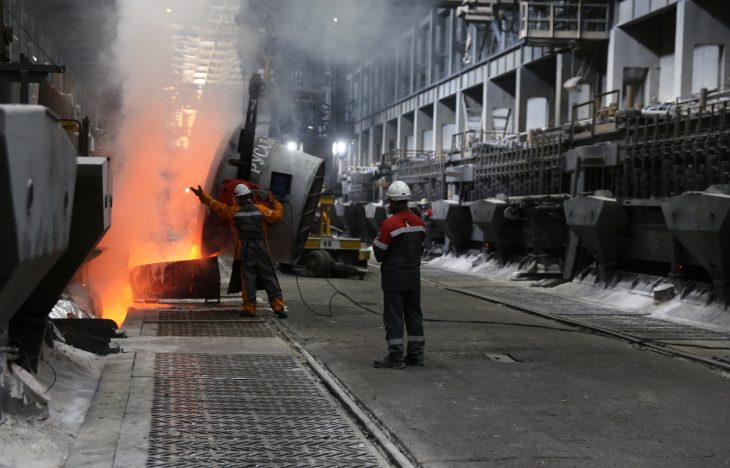UC Rusal completed the transition of cell technology at its Krasnoyarsk (KrAZ) aluminum smelter to EcoSøderberg technology.
The EcoSøderberg process is one of many developments achieved by Rusal’s Engineering and Technology Center. The process uses an improved design of the exhaust fume removal system which ensures a high degree of hermetic sealing, as well as an optimized anode pastе composition. This results in a significant reduction of emissions, particularly for emissions of tarry materials.
“The introduction of the EcoSøderberg process is a key part of the company’s modernization program,” stated Evgenii Nikitin, CEO of Rusal. “A new system of gas treatment has improved hermetic sealing of the cells, allowing us to effectively catch more than 99% of fluorides, 99.5% of benz (a) pyrene, and at least 96.5% of sulphur oxide.”
The comprehensive environmental program at KrAZ was launched in 2004 and comprised two stages. Between 2004 and 2019, KrAZ allocated over US$390 million towards the implementation of various modernization projects. The first stage, which focused on the smelter building, involved commissioning new gas treatment systems, installing an automated production process management system, and introducing the dry anode process.
The second stage included the introduction of the best available technologies in the KrAZ potrooms — including the recently completed US$74 million retrofitting project, in which a total of 1,954 reduction cells were modified to utilize the EcoSøderberg technology. During 2011-2020, the second stage of KrAZ eco-modernization allowed the smelter to reduce total emissions by 13.7%, while hydrofluoride emissions reduced by 30%.
As a result of the 16-year environmental program, the smelter’s total emissions have been cut by 38%, while fluoride emissions are down by 76%. Today, the smelter’s emissions, which end up in the air of the city, are 4.5 times less than they were back in 1980.
Rusal’s work to improve its efficiency and environmental performance continues across its operations. “At the moment, in addition to KrAZ, the [EcoSøderberg] process is being introduced at Rusal’s other smelters, such as BrAZ, IrkAZ, NkAZ, and VgAZ. In total, we plan for 400 reduction cells across five smelters to changeover to the new process this year,” noted Nikitin. “The next stage of our retrofitting efforts will involve deployment of inert anode reduction cells.”

